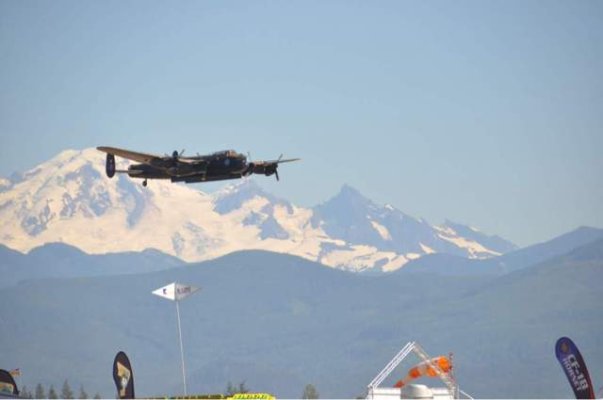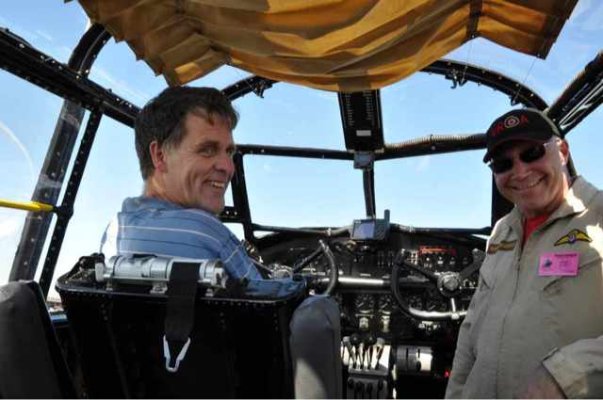ksanders
Moderator Emeritus
Tough to debate against better debaters whether the facts are clear or not..
I agree !

Last edited:
Tough to debate against better debaters whether the facts are clear or not..

Some are better at expressing themselves than others, but that doesn't make them right... It just makes them sound convincing.

It got me to thinking, if you're traveling to or passing through waters never traveled before, how would you handle safely navigating to your planned next stop if all electrical equipment went out?.....Just thinking about it makes me want to take an in depth navigation class.
Truer words have never been spoken. Take Marin for instance. He's a writer and an excellent wordsmith, creating mountains of information that boggles my mind. That, however, doesn't make him right! I get a kick out his flying parallels as if there aren't any other pilots or ex pilots on the Forum. (There are plenty, staying quiet & enjoying the banter.)Tough to debate against better debaters whether the facts are clear or not...

I would have liked to see Marin at the Navy's Arctic Survival School in the 1960s where they gave you a map, compass, an unopened ration can & a knife and told you to Navigate through the Maine woods in December to a pre determined destination. That would have been worth writing about!
You think I don't know that? This forum was STARTED by a pilot for Christ's sake. I use flying analogies because they often ring true to what we do with boats. If the other pilots on the forum want to do the same thing, they are certainly free to do so. It often helps to clarify a point about boating.I get a kick out his flying parallels as if there aren't any other pilots or ex pilots on the Forum.
Truer words have never been spoken. Take Marin for instance. He's a writer and an excellent wordsmith, creating mountains of information that boggles my mind. That, however, doesn't make him right! I get a kick out his flying parallels as if there aren't any other pilots or ex pilots on the Forum. (There are plenty, staying quiet & enjoying the banter.)
Now, I know that we are to be PC in our posts and not single individuals out for criticism, but I'm sorry, I just can't help it! Navigation is simple? Anyone can do it? I would have liked to see Marin at the Navy's Arctic Survival School in the 1960s where they gave you a map, compass, an unopened ration can & a knife and told you to Navigate through the Maine woods in December to a pre determined destination. That would have been worth writing about!

Marin, the pilot in you would appreciate this paper in the Journal of Navigation by Peter Hoare on navigating lancaster bombers during WWII..... Pm me if you want to read the article, I have the PDF.
Jim


wyoboater,
That's funny though your "doubting" Marin's dog can do it. That means you're alluding to the possibility that Marin's dog actually can do it. HAHA I wouldn't go there but given no math, instruments or other measuring devices Marin's dog could quite likely do better at finding his way home than Marin. Given other circumstances of navigation though Marin may best the dog .. his or no.


 The trail was only four miles so it would only take a little over an hour to walk. I grabbed my back pack with water, compass, flash light and some food and we were off at a brisk pace to get back before dark...
The trail was only four miles so it would only take a little over an hour to walk. I grabbed my back pack with water, compass, flash light and some food and we were off at a brisk pace to get back before dark... I opened up the back pack to get out my flash light and realized I had left the flash light in the house where I was using it for a project.
I opened up the back pack to get out my flash light and realized I had left the flash light in the house where I was using it for a project. 

 . We kept walking...
. We kept walking... Well she came back a minute or so later looking guilty but with a happy face after running the deer over a couple of ridges.
Well she came back a minute or so later looking guilty but with a happy face after running the deer over a couple of ridges. 
Someone buys their first boat, has a plotter, GPS, travels somewhere. Have they learned anything about navigation? If not, is that a good thing? Is it okay just because they have redundant systems?
I saw the CWH Lancaster in 2010 at the Abbotsford airshow. Here she flys with Mt. Baker in the background.
I think Marin's main thrust though, is the importance of understanding the principles and calculations that underlie navigation. Someone buys their first boat, has a plotter, GPS, travels somewhere. Have they learned anything about navigation? If not, is that a good thing? Is it okay just because they have redundant systems?
Jim
Sent from my iPad using Trawler Forum
But it's progress and it's a really good thing.
Bookkeeping is now done on the computer using accounting softwares such as Quickbooks. Most people don't know how to do bookkeeping by hand. Are these folks less qualified bookkeepers? I think not.
BandB;332474[/quote said:If you ever think you know it all, you're in trouble.
.... keep enjoying the new things the younger generation gives to us, because they are the ones seeing into the future with creativity, not us.
They do not share your rosy view of the upcoming workforce, which is one reason we are trying so hard to minimize it as quickly as possible.
